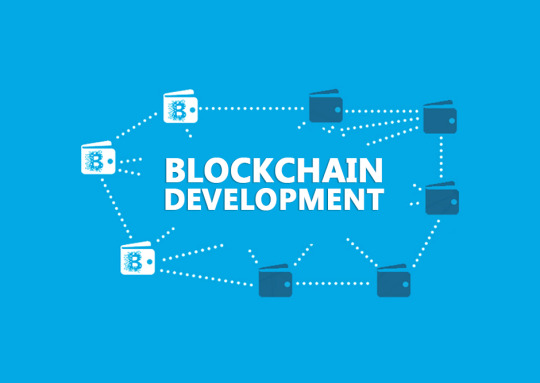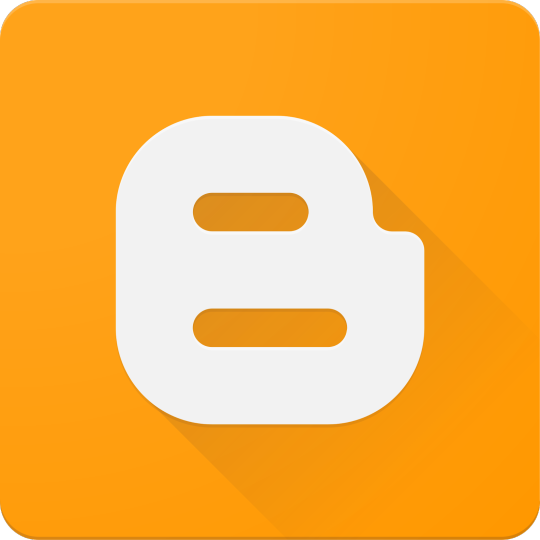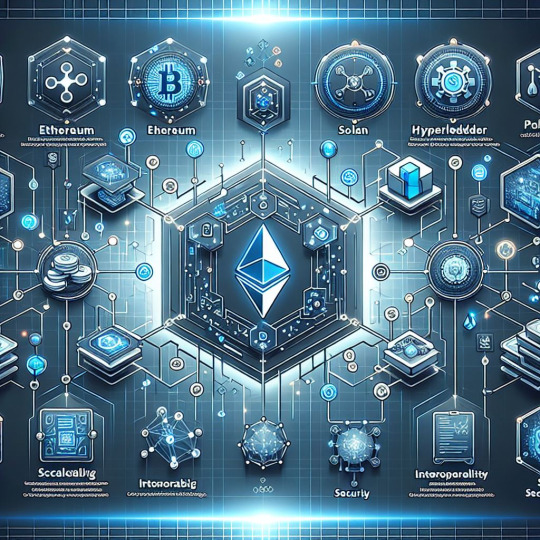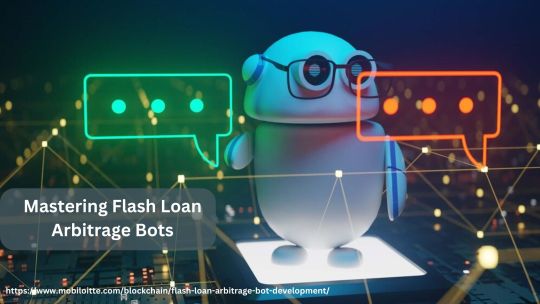#truffle js
Explore tagged Tumblr posts
Text
(VERY SELF INDULGENT) magma doodles 😁 (😬)





#somebody pls detain me 💀#/j#i love using atarashii gakko and babymetal for pose references <333 they r so dynamic#timekeeper cookie#electric eel cookie#truffle cookie#xylitol nova cookie#agent jjajang cookie#agent olive cookie#stevia nova cookie#im sorry if that dont look like stevia... i js think she'd try diff hair styles...#+ it my first time drawing eel n the agents..#my art#cookie run ovenbreak#crob
69 notes
·
View notes
Text


⸸ Lavelle Truffle Dining by JS [Vitasims3] ⸸ Resurrected Link ⸸









#vitasims3#buy mode#buymode object#buymode deco#deco#decodeco#comfort#surface#storage#mirror#curtains#botanica#deco kitchen#electro#decomisc#build mode#pattern#dining#living#themed#vampire#history
55 notes
·
View notes
Text
HE’S POISON — P. JS.
TRUFFLE OIL — EXPENSIVE AND CONTROVERSIAL






“CHEF” MINGYU — supposedly “that hot teacher from culinary”
“CHEF” JUNGKOOK — does anything but teaches students
“CHEF” SAEROM — her favourite students are the ones that dice onions for her
“CHEF” YOUNGHOON — #1 gatekeeper of cafeteria cookies
“CHEF” HASEUL — specialist in fine dining
“CHEF” JANGJUN — has a degree in yapology

prev ☁︎ next | POISON
🗯️ can u guys tell im not prepared to start hes poison like i only have one chapter written down
─── ☁︎ Delphinium Academy is Korea’s prestigious high school, it’s well known for its massive cafeteria with delicious selections every day. It’d be a blessing to get food there. So when you, a culinary prodigy, are accepted into their culinary course, it means free food and a cool uniform. To Jay, Delphinium’s best volunteer, having a culinary mastermind work with him is his biggest fear. So to prevent you from laying a finger on his kitchen, let’s just say you got salmonella and a rivalry between the both of you.
☁︎ rival! culinary student! jay x f! reader smau romcom
☁︎ taglist is open ; send an ask or comment under main mlist
[ 🏷️ ] @hanniluvi @giantkeroppi @haruavrse @mrchweeee @tocupid @oldjws @jongsie @cholexc @yenqa @kgneptun @luvnicho
#[ ♪ ] sona queued — check it out !#[ 🍽️ ] he's poison#jay enhypen#enhypen#jay smau#jay social media au#jay x reader#enhypen smau#enhypen social media au#enhypen x reader#kpop#kpop smau#kpop social media au
23 notes
·
View notes
Text
Hiring Blockchain Developers in the UAE: Costs, Skills & Where to Start

From being a mere scope of discussion affiliated with cryptocurrencies, blockchain technology has swiftly transformed into a powerful technology serving multiple industries – finance, supply chain, healthcare, real estate, and even government services. With organizations in the UAE racing to make innovations and gain a competitive upper hand, the demand to hire blockchain developers in UAE has soared tremendously. However, finding the right resources in this domain is not easy.
In this all-encompassing guide, we are going to discuss each and everything associated with the hiring of blockchain developers in UAE, such as cost details, essential skills, and how to go about it step by step.
Why the UAE Is a Hotspot for Blockchain Talent
Dubai and Abu Dhabi in the UAE are striving to become internationally recognized centers for blockchain innovation. Fully supported initiatives such as the Dubai Blockchain Strategy and the Emirates Blockchain Strategy 2021 showcase the government’s intent to transform 50% of government transactions into blockchain technology based workflows. Additionally, the business ecosystem is also optimally set up with friendly policies, tax breaks, and global market accessibility.
With growing initiatives, specialized skill developers, and a competitive startup environment, the UAE serves as the prime location for blockchain development. Therefore, if you are looking to hire blockchain developers in UAE, the time to act is now.When Looking To Hire Blockchain Developers, What Things Should You Keep In Mind?
Regardless of your situation, the most critical component is whether hiring blockchain developers makes sense to your business. You might need developers for blockchain in the UAE if:
You aim to build a decentralized app (i.e., dApp)
You want to execute transactions via smart contracts for secured and automated dealings
You are looking to launch an NFT marketplace or a token-based project
You need secure sharing of information among several different parties
There's interest towards blockchain for use in identity checks, supply chain verifiability, or solutions dealing with finances
Key pointers to remember as you prepare for the recruitment drive
The field of Blockchain Technology is very broad and so are the skill sets that need to be hired for it. When planning to hire a blockchain expert in the UAE region, candidates should at least have these skills:
1. Major Technical Skills Needed
Proficiency in Programming Languages: Rust, Python, Go, Javascript, and Solidity for Ethereum
Contract Creation: Experience with Ethereum, Binance Smart Chain, and Hyperledger
Blockchain Architecture: Understanding nodes, data structures, and consensus algorithms
Cryptography: Understanding security protocols, public and private key encryption, and hashing
Token Streamlining: Experience with capturing events with Etherscan API and employing Web3 for token issuance
Web3 and dApp work: Experience with MetaMask and Web3.js
2. Development Tools & Platforms
Truffle and Hardhat for Testing and Deployment
Smart contract prototyping using Remix IDE
Decentralized Storage And Orals Using IPFS Along with Chainlink
Git for version control
3. Soft Skills adequacies
Problem-solving mind
Agile and collaborative development approaches
Ability to document and communicate clearly
Costs of Hiring Blockchain Developers in the UAE
The price of hiring blockchain developers is on the higher side owing to their complexity and specialization. However, their cost within the UAE is subject to other factors:
1. Hiring Model
In-House Developer: AED 25,000 - AED 45,000/month
Freelancer/Contractor: AED 150 - AED 400/hour
Dedicated Development Team via Agency: AED 35,000 - AED 65,000/month depending on team size and experience
2. Experience Level
Junior Developer (0-2 years): AED 15,000 - AED 25,000/month
Mid-Level Developer (2-5 years): AED 25,000 - AED 35,000/month
Senior Developer (5+ years): AED 35,000 - AED 50,000+/month
3. Project Scope and Complexity
The more complex your blockchain solution is (for example, multi-chain support, custom tokenomics, interoperability), the more costly it will be to develop.
Identifying the Best Blockchain Developers in the UAE
Whether you want to work with a freelancer or engage a full-blown team, the UAE has numerous avenues to tap into freelance and knowledgeable blockchain workers. Below is a compilation of some of the foremost starting points.
1. Administrative Job Assignment Sites
Said websites include Total, Upwork, and Freelancers which let you transact with specialized blockchain developers from across the globe with many being located in the UAE.
2. Blockchain Development Agencies
WDCS Technology, for example, provides specialized ready-made blockchain development consultants alongside other consulting services pertaining to the industry. If you are looking for a complete blockchain development service without going through the recruitment process, this is the ideal route for you.
3. Generic Job Portals Alongside Professional Networking Websites
For job listings, you can use Bayt and Naukrigulf.
You can meet local developers at Workshop meetup and for Talk Tech in Dubai.
For professional connections, LinkedIn UAE serves the purpose.
4. University Incubators and Hackathons
You can get in touch with some of the tech incubators from Khalifa University or take part in Gitex Future Stars to scout for innovative blockchain developers.
Systematic Guideline for Recruiting Blockchain Developers in UAE
Step 1: Define the boundaries and constraints of your project.
It should include objectives, relevant blockchain platform, features, and deadlines.
Step 2: Pick the Hiring Model
Select from in-house, freelance, or development agency based on financial resources, project details, and future goals.
Step 3: Conduct Skills & Experience Evaluation
Assess candidate skills using technical tests, coding competitions, and relevant work sample evaluations.
Step 4: Determine Organizational Values, Work Style, and Soft Skills
Look to see whether the developer fits your organizational practices, protocols, and whether they are able to work in teamwork settings.
Step 5: Effective Onboarding & Management
Implement agile project approaches with daily stand-ups and use tools like Jira or Trello for milestones to manage progress.
Legal and Regulatory Framework
If you are hiring blockchain developers in UAE and dealing with tokens, digital financial assets, or consumer information, the following regulations should be considered:
Adhere to the UAE Central Bank rules regarding digital assets
Obey the ADGM and DIFC free zone laws if operating in those areas
Have adequate Intellectual Property (IP) ownership and Non-Disclosure Agreements (NDAs) in place within your employment agreements
Most Common Issues and Solutions:
1. Limited skilled candidates
It is still a developing skill. This problem can be solved by collaboration within agencies.
2. Change Technology Quickly
Look for developers who actively participate in the community and are willing to learn new things.
3. Risks In Security
Make sure to enforce secure coding policies with internal developer teams and conduct regular audits.
Why Collaborate With A Blockchain Development Agency In The UAE?
It may seem cost-effective to hire freelancers or build an internal team, but working with a dedicated agency like WDCS Technology has added benefits, such as:
Access to a ready-to-use team of blockchain specialists.
Faster time-to-market.
All-round project assistance right from the concept through to deployment.
The ability to adjust resource levels as required with project growth.
Conclusion
The UAE is a good market for businesses looking to hire blockchain developers because it has a blend of progressive policies and a growing technology ecosystem. However, having the skilled talent to help build and manage a decentralized platform, digital tokens, or secure data flows is what makes the difference.
If you are looking to accelerate the pace of your blockchain project while avoiding expensive mistakes, it is recommended that you consult local experts who know the market well.
Have You Prepared Yourself To Employ Blockchain Developers In UAE?
WDCS Technologies provides UAE centered blockchain development services. UAE certified specialists can help execute your ideas securely and efficiently and within the designated timeframe.
Visit Our Services or Get In Touch With Us To Start!
0 notes
Text
Top 10 Blockchain Consulting Firms: Your Guide to Navigating the Decentralized Universe

Embarking on a blockchain journey can feel like assembling IKEA furniture without the manual—confusing and potentially resulting in a few extra screws. But fear not! These top-notch blockchain consulting firms are here to guide you through the complexities, ensuring your project stands tall and functions flawlessly. Let's dive in!
1. Pearl Lemon Crypto
With over 9 years in the digital space, Pearl Lemon Crypto isn't just another crypto firm; it's a seasoned veteran in marketing, lead generation, and web development. Think of them as your personal GPS in the vast crypto universe—guiding you to profitable investments while avoiding the black holes. Whether you're a newbie or a seasoned investor, they've got strategies tailored to your needs. Plus, their approach is as refreshing as a cold drink on a hot day.
2. Consensys
Founded by Ethereum co-founder Joseph Lubin, Consensys is a powerhouse in the blockchain space. They're the brains behind MetaMask, Infura, and Truffle, offering a suite of tools that make blockchain development as smooth as a well-oiled machine. Whether you're building decentralized applications or exploring the depths of DeFi, Consensys has the expertise to bring your vision to life.
3. LeewayHertz
LeewayHertz is a seasoned player in the blockchain arena, boasting over 15 years of experience and more than 60 successful blockchain projects. They specialize in areas like DeFi, NFTs, and Web3 development, offering services that range from strategy workshops to full-scale blockchain implementations. If you're looking for a partner who can turn your blockchain ideas into reality, LeewayHertz is a solid choice.
4. PixelPlex
PixelPlex is a technology company that has been delivering custom software solutions and consultancy since 2007. They specialize in blockchain, AI, machine learning, big data, and AR/VR. PixelPlex’s blockchain services include implementation rationale, tokenomics development, financial modeling, industry insights, tech stack advice, and project management. With over 450 completed projects and clients in more than 120 countries, their innovative approach and dedication to quality have earned them a stellar reputation in the industry.
5. ChainSafe Systems
ChainSafe Systems is a highly respected blockchain consulting company, known for its expertise in building decentralized solutions. The team has worked on some of the most ambitious projects in Web3, including those involving blockchain interoperability, gaming, and decentralized storage. What sets ChainSafe apart is its technical expertise across multiple blockchain protocols, including Ethereum, Polkadot, and Cosmos. They’re the developers behind Web3.js and the ChainBridge protocol, tools that have empowered countless decentralized applications.
6. Altoros
Altoros is a well-established name in the world of blockchain and cloud consulting. With expertise spanning multiple blockchain frameworks such as Hyperledger, Ethereum, and Corda, Altoros offers robust solutions for startups and enterprises alike. They’re known for their hands-on approach, which involves working closely with founders to identify their needs and tailor solutions accordingly. Their services include blockchain development, smart contract programming, and tokenomics consulting.
7. Deloitte Blockchain Lab
Deloitte’s Blockchain Lab brings the credibility and resources of one of the world’s largest consulting firms to the blockchain space. They’ve worked with clients ranging from startups to multinational corporations, providing solutions in areas like supply chain, identity management, and digital currencies. For Web3 founders, Deloitte’s Blockchain Lab offers valuable insights into regulatory compliance, scalability, and operational efficiency. While their services may come at a premium, the value they provide is unmatched for startups looking for enterprise-grade expertise.
8. Accenture
Accenture provides comprehensive blockchain consulting services, helping businesses identify, implement, and scale blockchain solutions. Their expertise spans various blockchain platforms, including Hyperledger, Ethereum, and Corda. Accenture’s approach combines industry knowledge, technical expertise, and strategic insights to deliver impactful blockchain solutions that drive business transformation.
9. PwC Blockchain
PwC offers a range of blockchain consulting services designed to help businesses navigate the complexities of blockchain technology. Their services include blockchain strategy, risk assessment, implementation, and regulatory compliance. PwC’s blockchain team brings a wealth of experience and a global perspective, ensuring that clients receive innovative and compliant blockchain solutions tailored to their needs.
10. Softstack
Softstack is a Web3-focused technology company headquartered in Flensburg, Germany. The company provides blockchain software development, cybersecurity, and smart contract auditing services. Founded in 2017, Softstack originally operated under the name Chainsulting before rebranding in 2024 to reflect its expanded service offerings. Softstack has worked on numerous smart contract audits, particularly in the DeFi space, with projects that collectively manage over $100 billion in user funds.
Final Thoughts
Choosing the right blockchain consulting firm is like picking a co-pilot for a space mission—you want someone who knows the terrain, understands the tech, and can navigate the complexities of the decentralized universe. Whether you're building a DeFi platform, launching an NFT marketplace, or exploring the metaverse, these firms offer the expertise and experience to turn your blockchain dreams into reality. So, buckle up and get ready to embark on your blockchain🧠 Top 10 Blockchain Consulting Firms: Your Guide to Navigating the Decentralized Universe
0 notes
Text
Which are the Best Technology and Stacks for Blockchain Development?
The Digital palpitation of Blockchain
The world is still being rewritten by lines of law flowing through blockchain networks. From banking to supply chain and indeed healthcare, the monumental plates of technology are shifting — and blockchain is at the center.

Why Choosing the Right Tech mound Matters
In the blockchain realm, your tech mound is not just a toolkit; it’s your legion. Picking the wrong combination can lead to security loopholes, scalability agonies, or simply development backups. In discrepancy, the right mound empowers invention, adaptability, and lightning-fast performance.
A regard Into Blockchain’s Core Principles
Blockchain is basically a distributed tally. inflexible, transparent, and decentralized. Every decision about development tech must round these foundational values.
Public vs Private Blockchains Know the Battleground
Public blockchains like Ethereum are open, permissionless, and unsure. Private blockchains like Hyperledger Fabric offer permissioned access, suitable for enterprises and healthcare CRM software inventors looking for regulated surroundings.
Top Programming Languages for Blockchain Development
Reliability The Ethereum Favorite
erected specifically for Ethereum, Solidity is the language behind smart contracts. Its tight integration with Ethereum’s armature makes it a no- brainer for inventors entering this space.
Rust The Arising hustler
Lightning-fast and memory-safe, Rust is dominating in ecosystems like Solana and Polkadot. It offers fine- granulated control over system coffers a gift for blockchain masterminds.
Go Concurrency Champion
Go, or Golang, stands out for its simplicity and robust concurrency support. habituated considerably in Hyperledger Fabric, Go helps gauge distributed systems without breaking a sweat.
JavaScript & TypeScript Web3 Wizards
From UI to connecting smart contracts, JavaScript and TypeScript continue to dominate frontend and dApp interfaces. Paired with libraries like Web3.js or Ethers.js, they bring the Web3 macrocosm alive.
Smart Contract Platforms The smarts Behind the Chain
Ethereum
The undisputed leader. Its vast ecosystem and inventor community make it a top choice for smart contract development.
Solana
Known for blazing speed andultra-low freights, Solana supports Rust and C. Ideal for high- frequence trading and DeFi apps.
Frontend Technologies in Blockchain Apps
Reply and Angular UX Anchors
Both fabrics give interactive, scalable stoner interfaces. React’s element- grounded design fits impeccably with dApp armature.
and Ethers.js
They're the islands between your blockchain and cybersurfer. Web3.js supports Ethereum natively, while Ethers.js offers a lighter and further intuitive API.
Backend Technologies and APIs
Perfect for handling multiple connections contemporaneously, Node.js is extensively used in dApps for garçon- side scripting.
A minimalist backend frame, Express.js integrates painlessly with APIs and Web3 libraries.
GraphQL
In a data- driven ecosystem, GraphQL enables briskly, effective queries compared to REST APIs.
Blockchain fabrics and Tools
Truffle Suite
Complete ecosystem for smart contract development collecting, testing, and planting.
Databases in Blockchain Systems
IPFS( InterPlanetary train System)
A peer- to- peer storehouse result that decentralizes train storehouse, essential for apps demanding off- chain data.
BigchainDB
Blending blockchain features with NoSQL database capabilities, BigchainDB is knitter- made for high- outturn apps.
Essential DevOps Tools
Docker
Ensures harmonious surroundings for development and deployment across machines.
Kubernetes
Automates deployment, scaling, and operation of containerized operations.
Jenkins
The robotization backbone of nonstop integration and delivery channels in blockchain systems.
Security Considerations in Blockchain Tech Stacks
Security is n’t a point. It’s a necessity. From contract checkups to secure portmanteau integrations and sale confirmation, every subcaste needs underpinning.
Tech mound for Blockchain App Development A Complete Combo
Frontend React Web3.js
Backend Node.js Express GraphQL
Smart Contracts reliability( Ethereum) or Rust( Solana)
fabrics Hardhat or Truffle
Database IPFS BigchainDB
DevOps Docker Kubernetes Jenkins
This tech stack for blockchain app development provides dexterity, scalability, and enterprise- readiness.
Part of Consensus Algorithms
evidence of Work
Secure but energy- ferocious. PoW is still used by Bitcoin and other heritage systems.
evidence of Stake
Energy-effective and fast. Ethereum’s transition to PoS marked a vital shift.
Delegated Proof of Stake
Used by platforms like EOS, this model adds governance layers through tagged validators.
Part of Artificial Intelligence in Banking and Blockchain Synergy
AI and blockchain are reconsidering banking. Fraud discovery, threat modeling, and smart contracts are now enhanced by machine literacy. The role of artificial intelligence in banking becomes indeed more potent when intermingled with blockchain’s translucency.
Blockchain in Healthcare A Silent Revolution
Hospitals and pharma titans are integrating blockchain to track case records, medicine authenticity, and insurance claims.
Healthcare CRM Software Developers Leading the Change
By bedding blockchain features in CRM platforms, companies are enhancing data sequestration, concurrence shadowing, and real- time health analytics. In this invention surge, healthcare CRM software developers Leading the Change are setting new norms for secure and effective case operation.
Popular Blockchain Use Cases Across diligence
Finance Smart contracts, crypto holdalls
Supply Chain Tracking goods from origin to shelf
Voting Tamper- proof digital choices
Gaming NFTs and digital power
Challenges in Blockchain App Development
Interoperability, scalability, energy operation, and evolving regulations challenge indeed the stylish inventors.
The Future of Blockchain Development Tech Stacks
We'll see confluence AI, IoT, and edge computing will integrate with blockchain heaps, making apps smarter, briskly, and indeed more decentralized.
0 notes
Text
9 Mistakes to Avoid When Learning Web3 Development
As the demand for Web3 development continues to rise in 2025, more developers are exploring this exciting new world of decentralized technologies. However, Web3 is not just another coding skill—it requires a shift in mindset, architecture, and tools.

Whether you're new to blockchain or transitioning from Web2, avoiding common mistakes early can save you time, frustration, and even money. In this article, we’ll break down 9 common mistakes to avoid when learning Web3 development, along with practical advice to get ahead.
1. Skipping Blockchain Fundamentals
Many developers jump straight into coding smart contracts without truly understanding how blockchains work. A solid grasp of consensus mechanisms, transaction flow, gas fees, and blocks is essential.
If you don’t understand the system you’re building on, you’ll likely introduce security flaws or build inefficient applications.
2. Neglecting Smart Contract Security
One of the most critical areas in Web3 development services is smart contract security. Vulnerabilities like reentrancy attacks, integer overflows, or improper access control can cause major losses.
Before deploying anything live:
Study secure development practices
Use auditing tools like Slither or MythX
Learn from past exploit case studies
3. Focusing Only on Ethereum
Ethereum is popular, but it’s not the only chain. Developers should also explore other ecosystems like:
Polygon (Layer 2 scaling)
Solana (high throughput)
BNB Chain
Arbitrum and Optimism (Layer 2 rollups)
Modern Web3 development companies work across multiple chains to optimize performance, fees, and user experience.
4. Ignoring Web2 Skills
Many newcomers believe Web3 requires abandoning traditional web skills. In reality, you still need:
HTML/CSS
JavaScript frameworks like React or Next.js
API integration
A great dApp still needs a solid UI. Web3 solutions that ignore frontend development often end up with poor usability.
5. Not Testing Thoroughly
Failing to test smart contracts and dApps properly is a costly mistake. You should use testnets (like Sepolia, Mumbai, or Fuji) and automated testing tools to catch bugs early.
Use:
Hardhat
Foundry
Truffle
Ganache
Testing is standard practice for every successful Web3 development agency.
6. Underestimating Gas Fees
Gas fees on chains like Ethereum can fluctuate wildly. Writing inefficient code can lead to high execution costs for users.
Web 3.0 developers should optimize smart contracts and understand gas estimation to keep dApps affordable.
7. Not Understanding Token Standards
A good Web 3.0 development company should be familiar with:
ERC-20 (fungible tokens)
ERC-721 (NFTs)
ERC-1155 (multi-token standard)
Knowing when and how to use each standard is essential to creating interoperable Web3 platforms.
8. Skipping Documentation and Community Resources
The Web3 space evolves rapidly. Developers who don’t read documentation or participate in developer forums fall behind quickly.
Stay active on GitHub, Discord, and follow official docs for tools like Ethers.js, Web3.js, and The Graph.
9. Building Without Real-World Use Cases
Many developers jump into projects without solving real problems. Building “just another NFT site” with no unique value won’t succeed.
Study existing Web3 development services and identify how to innovate. Whether it’s finance, gaming, social media, or supply chains—every great project starts with a meaningful problem.
Final Thoughts
Learning Web3 development is rewarding, but it comes with its challenges. By avoiding these 9 common mistakes, you’ll set yourself up for long-term success in the decentralized space.
At Nadcab Labs, we guide startups and enterprises through successful blockchain implementation. Our experienced Web 3.0 developers and security-first mindset ensure that your project is built the right way from the start.
Whether you're building a dApp, NFT platform, or DeFi protocol, we’re here to help.
Visit us here for more:- https://www.nadcab.com/web3-development-services
Get more Blockchain and Web3 Insights with Nadcab Labs
Twitter - twitter.com/nadcablabs
LinkedIn - linkedin.com/company/nadcablabs
Facebook- facebook.com/nadcablabs
Instagram- instagram.com/nadcablabs
YouTube- www.youtube.com/@nadcablabs
#blockchain#technology#web3developmentcompany#Web3DevelopmentServices#Web3Solutions#Web3Development#Web3.0Development#Web3.0DevelopmentServices#web3.0solutions#Web3.0DevelopmentCompany#Web3developmentagency#Web3.0developer
0 notes
Text
Why Should Your Upcoming Blockchain Project Be Managed by a Web3 Development Company?

Blockchain technology has evolved from a futuristic idea to a strategic requirement in the rapidly changing digital landscape. Selecting the appropriate development partner becomes essential as companies move towards decentralised solutions. A Web3 development company like Iotric can help with this, providing specialised knowledge and state-of-the-art tools to make your blockchain project a reality.
A Web3 Development Company: What Is It?
Using the newest blockchain protocols and technology, a Web3 development business specialises in creating token-based ecosystems, smart contracts, decentralised apps (dApps), and blockchain integrations. These businesses specialise on the blockchain systems that underpin the decentralised web, including Ethereum, Polkadot, Solana, and Binance Smart Chain.
The Best Reasons to Work with a Web3 Development Company
1. Decentralised Technology Expertise
A thorough understanding of blockchain protocols, smart contracts, and cryptographic security is necessary for Web3 development. A committed group of blockchain architects, dApp developers, and smart contract engineers at a seasoned Web3 development firm like Iotric can create safe, scalable solutions that meet your requirements.
2. Complete Development Support
A Web3 development business offers full-cycle development services, from conception and design to implementation and upkeep. They take care of everything, guaranteeing a smooth and effective development process whether you're establishing a metaverse application, NFT marketplace, or decentralised finance (DeFi) platform.
3. Tailored Blockchain Options
Every company has different needs. To develop unique blockchain architectures, consensus processes, and tokenomics models that complement your objectives and industry norms, a specialised Web3 firm will collaborate closely with you.
4. Quicker Time-to-Market
In the cutthroat blockchain industry, time is of the essence. Your development time can be greatly shortened by working with a skilled Web3 development partner. You can launch more quickly and remain ahead of the curve with their pre-built modules, reusable parts, and agile approaches.
5. Compliance and Security
To prevent weaknesses, blockchain projects need to be constructed with the greatest security requirements. Web3 development firms secure your ecosystem from hackers and breaches by adhering to best practices in data privacy, compliance, and smart contract audits.
6. Availability of the Newest Frameworks and Tools
A skilled Web3 staff keeps abreast of the most recent developments in the blockchain industry. To create reliable and feature-rich apps, they make use of contemporary frameworks like Hardhat, Truffle, Web3.js, and IPFS.
What Makes Iotric the Best Web3 Development Company for You?
Iotric is a reputable Web3 development firm that provides innovative blockchain solutions to entrepreneurs, businesses, and startups. Iotric, which has a robust portfolio in dApps, NFTs, DeFi platforms, and DAOs, helps you create solutions that are both impactful and future-ready by fusing technological prowess with strategic insights.
Concluding remarks
One of the best decisions you can make for your upcoming blockchain project is to work with a Web3 development company. In a decentralised environment, it guarantees long-term success, quicker deployment, and technical precision. Working with professionals like Iotric can help you realise your idea, whether you're creating a game-changing DeFi app or the next big NFT platform.
0 notes
Text
𝐓𝐡𝐞 𝐇𝐨𝐥𝐲 𝐓𝐫𝐢𝐧𝐢𝐭𝐲 𝐨𝐟 𝐖𝐞𝐛3 🔥
Want to build your own dApp in 2025? These 3 Web3 tools — Hardhat, Truffle Suite, and Web3.js — are must-haves for every blockchain developer. Whether you're deploying smart contracts or creating responsive dApp interfaces, these tools make Web3 development smooth, fast, and efficient.
From automated testing to real-time blockchain interaction, learn which tool fits your needs and why they’re dominating the Web3 space!
Watch more https://youtube.com/shorts/J-RIfZ53GWk
👇 Drop a 🔥 if you’re building in Web3!
#Web3#Blockchain#CryptoDev#SmartContracts#dAppDevelopment#Ethereum#Hardhat#TruffleSuite#Web3js#NoCode#CryptoTools#DevTools#CryptoNews#TechTrends#YouTubeShorts
0 notes
Text
Getting Started with Blockchain Application Development

Blockchain technology is transforming industries by providing a secure, transparent, and decentralized way to record transactions. As the demand for blockchain applications increases, developers are presented with new opportunities to create innovative solutions. In this post, we’ll explore the fundamentals of blockchain application development and how you can get started building your own dApps.
What is Blockchain?
Blockchain is a distributed ledger technology that records transactions across multiple computers in a way that ensures the security and transparency of data. Each block in the chain contains a list of transactions, and once a block is added to the chain, it cannot be altered without consensus from the network.
Key Features of Blockchain
Decentralization: No central authority; data is distributed across a network of nodes.
Transparency: All transactions are visible to participants, ensuring accountability.
Security: Cryptographic techniques secure data, making it difficult to tamper with.
Immutability: Once recorded, transactions cannot be changed or deleted.
Common Blockchain Platforms
Ethereum: The most popular platform for building decentralized applications (dApps) using smart contracts.
Hyperledger Fabric: A permissioned blockchain framework for enterprise solutions.
Binance Smart Chain: A blockchain network running smart contract-based applications.
Solana: Known for its high throughput and low transaction costs, suitable for scalable dApps.
Cardano: A blockchain platform focused on sustainability and scalability through a layered architecture.
Understanding Smart Contracts
Smart contracts are self-executing contracts with the terms directly written into code. They automatically execute actions when predefined conditions are met, eliminating the need for intermediaries. Smart contracts are primarily used on platforms like Ethereum.
Example of a Simple Smart Contract (Solidity)
pragma solidity ^0.8.0; contract SimpleStorage { uint public storedData; function set(uint x) public { storedData = x; } function get() public view returns (uint) { return storedData; } }
Building Your First dApp
Set Up Your Development Environment:
Install Node.js and npm.
Use frameworks like Truffle or Hardhat for development.
Install a wallet like MetaMask for interacting with the blockchain.
Write a Smart Contract: Use Solidity to define the contract's logic.
Deploy the Contract: Deploy to a test network (e.g., Rinkeby, Kovan) using tools like Remix.
Create a Frontend: Use libraries like web3.js or ethers.js to interact with the smart contract from a web application.
Test and Iterate: Test your dApp thoroughly on test networks before deploying to the mainnet.
Best Practices for Blockchain Development
Write modular, reusable, and easily understandable code for smart contracts.
Implement proper error handling and validation to prevent vulnerabilities.
Conduct thorough testing, including unit tests and integration tests.
Stay updated with the latest security practices and common vulnerabilities (e.g., reentrancy, overflow).
Utilize code audit tools to review your smart contracts before deployment.
Conclusion
Blockchain application development offers exciting opportunities to create decentralized solutions that can change the way we interact and transact online. By understanding the basics of blockchain, smart contracts, and development tools, you can begin your journey into this innovative field. Start small, experiment, and build your way up to more complex dApps!
0 notes
Text
How to Choose the Best Crypto Development Company?

Introduction
The cryptocurrency industry is growing at an unprecedented rate, making it crucial for businesses and entrepreneurs to find the right crypto development company to build secure, scalable, and innovative blockchain solutions. With countless options available, choosing the best development partner can be a challenging task. This guide provides a comprehensive roadmap to help you make an informed decision.
Key Factors to Consider When Choosing a Crypto Development Company
1. Expertise in Blockchain Technologies
Before selecting a company, assess its expertise in blockchain technologies such as Bitcoin, Ethereum, Binance Smart Chain, Polkadot, and Solana. A good crypto development firm should have in-depth knowledge of:
Smart contract development
Decentralized applications (DApps)
Custom blockchain solutions
Crypto wallets and exchanges
2. Experience and Portfolio
Review the company’s past projects and portfolio to evaluate their experience in handling blockchain projects. Check for:
Case studies and success stories
Diversity of projects (NFTs, DeFi platforms, token development, etc.)
Testimonials from previous clients
3. Security Measures
Security is paramount in blockchain and cryptocurrency development. Ensure the company follows best security practices, such as:
Smart contract auditing
Penetration testing
Secure key management solutions
Compliance with industry standards like GDPR and KYC/AML
4. Development Methodology
A well-structured development methodology ensures the smooth execution of a project. Check whether the company follows Agile, Scrum, or DevOps methodologies for project management and development.
5. Technology Stack
Ensure the company uses cutting-edge technologies, including:
Programming languages: Solidity, Rust, Python, JavaScript
Blockchain frameworks: Ethereum, Hyperledger, Cosmos SDK
Tools: Truffle, Hardhat, Web3.js, IPFS

6. Cost and Pricing Model
Evaluate the pricing model of the company. Some firms charge a fixed price, while others operate on a time and material model. Compare costs and ensure there are no hidden charges.
7. Compliance and Regulatory Standards
Crypto projects must adhere to various regulations depending on their target market. Ensure the company is well-versed in regulatory requirements like SEC guidelines, GDPR compliance, and AML/KYC norms.
8. Post-Development Support and Maintenance
A reliable crypto development company provides post-launch support for bug fixes, upgrades, and maintenance. Check if they offer:
Technical support
Smart contract auditing
Regular software updates
9. Transparency and Communication
A trustworthy company maintains transparent communication throughout the project lifecycle. Ensure they offer:
Regular updates and reports
Dedicated project managers
Direct communication via Slack, Zoom, or email
Conclusion
Choosing the best crypto development company requires careful consideration of expertise, security, experience, and regulatory compliance. Conduct thorough research, assess the portfolio, and communicate with potential partners before making a final decision.
By following these guidelines, you can ensure your blockchain project is developed by a reliable and skilled team, setting the foundation for success in the evolving crypto landscape.
0 notes
Text


⸸ Lavelle Truffle Bedroom by JS [Vitasims3] ⸸ Resurrected Link ⸸








#vitasims3#buy mode#bedroom#buymode object#buymode deco#deco#deco bedroom#decodeco#comfort#surface#dresser#deco dresser#mirror#fireplace#electro#cosmetics#light#botanica#rug#curtains#decomisc#build mode#wall#themed#vampire#history
58 notes
·
View notes
Text

When hiring a Solidity developer, look for expertise in smart contract development, Ethereum blockchain knowledge, security best practices, gas optimization, Solidity debugging, familiarity with frameworks like Hardhat and Truffle, proficiency in Web3.js and Ethers.js, understanding of DeFi protocols, experience with testing tools like Chai and Mocha, and knowledge of Solidity design patterns.
0 notes
Text
Best Tools and Frameworks for Blockchain Development in 2025
Blockchain technology continues to evolve in 2025, with developers seeking robust tools and frameworks to streamline the creation of decentralized applications (DApps), smart contracts, and other blockchain solutions. As the demand for scalable, secure, and efficient blockchain solutions grows, leveraging the right tools has become essential for success. Here are the top tools and frameworks for blockchain development in 2025.

1. Solidity
Solidity remains the cornerstone for blockchain developers working on Ethereum-based projects. It is a statically typed programming language specifically designed for writing smart contracts. With extensive community support and comprehensive documentation, Solidity allows developers to create secure and reliable DApps. Updates in 2025 have improved its debugging capabilities and compatibility with Ethereum Layer 2 solutions.
Key Features:
Extensive libraries for contract development.
Strong community support.
Optimized for Ethereum and EVM-compatible chains.
2. Hardhat
Hardhat is a versatile Ethereum development environment, essential for testing, deploying, and debugging smart contracts. It supports Solidity and integrates seamlessly with popular tools like Ethers.js. Hardhat’s debugging features and customizability have made it a go-to framework for developers in 2025.
Key Features:
Rich plugin ecosystem.
Advanced error reporting for Solidity.
Local blockchain network for testing.
3. Truffle Suite
Truffle Suite offers a complete development environment for blockchain applications, including testing, debugging, and deployment. The suite includes:
Truffle: A development framework.
Ganache: A personal blockchain for testing.
Drizzle: Front-end libraries for DApp interaction.
In 2025, Truffle’s integration with Layer 2 solutions and multi-chain compatibility have further strengthened its position as a leading blockchain tool.
Key Features:
Simplified contract lifecycle management.
Strong testing tools.
Integrated developer workflow.
4. Remix IDE
Remix is an open-source web-based IDE for Ethereum smart contract development. It is especially popular among beginners due to its user-friendly interface. Remix now supports advanced debugging features, plugin extensions, and deployment on multiple Ethereum testnets.
Key Features:
Browser-based accessibility.
Supports Solidity and Vyper.
Comprehensive debugging tools.
5. Hyperledger Fabric
Hyperledger Fabric is the top choice for enterprise blockchain solutions. It provides a modular architecture, making it suitable for industries like finance, healthcare, and supply chain. Fabric’s private blockchain network capabilities and scalability enhancements in 2025 have positioned it as a leader in permissioned blockchain frameworks.
Key Features:
Modular and customizable architecture.
High transaction throughput.
Strong privacy and security measures.

Explore AICERT’s wide range of AI and Blockchain certifications, and don’t forget to use the code NEWUSERS25 for a 25% discount on all courses. Click here to start your journey into AI and Blockchain today!
“Have questions or are ready to take the next step in your AI certification journey? Reach out to us at AI CERTs — our team is here to guide you every step of the way!”
6. Web3.js and Ether.js
Both Web3.js and Ethers.js are JavaScript libraries that facilitate interaction with Ethereum networks. Developers use these tools to build front-end interfaces for blockchain applications. In 2025, their support for multi-chain networks and integration with DeFi protocols has made them indispensable.
Key Features:
Simplified DApp development.
Support for various Ethereum-based protocols.
Comprehensive documentation.
7. Polkadot.js
Polkadot.js is a suite of tools for interacting with the Polkadot ecosystem. It includes libraries and UI interfaces for developing and managing parachains. With Polkadot gaining traction in 2025, this toolset is essential for developers building interoperable blockchain solutions.
Key Features:
Comprehensive support for Polkadot’s ecosystem.
API for blockchain interaction.
Lightweight and efficient.
8. Substrate
Substrate powers Polkadot’s ecosystem and enables developers to build custom blockchains. Its flexibility, along with updated features like enhanced scalability and cross-chain compatibility in 2025, makes it a top choice for blockchain developers.
Key Features:
Framework for building interoperable blockchains.
Pre-built modules for easy customization.
Strong community and documentation.
9. Alchemy
Alchemy is a blockchain infrastructure provider that simplifies DApp development with powerful APIs and tools. In 2025, Alchemy’s services have expanded to include advanced analytics and debugging for multiple blockchain networks.
Key Features:
Real-time analytics and monitoring.
Scalable API services.
Multi-chain compatibility.
10. IPFS (InterPlanetary File System)
IPFS is a distributed file system that enables decentralized data storage and sharing, a critical component of many blockchain applications. In 2025, IPFS’s advancements in performance and security have made it even more appealing for developers.
Key Features:
Peer-to-peer file sharing.
Efficient and secure data storage.
Interoperability with blockchain networks.

Conclusion
As blockchain development matures in 2025, these tools and frameworks empower developers to build innovative, scalable, and secure blockchain solutions. From Solidity for smart contracts to Substrate for custom blockchains, each tool offers unique benefits tailored to specific use cases. By leveraging the right combination of these tools, developers can stay ahead in the competitive blockchain landscape.
Optimize Your Blockchain Projects Today! Choose the best tools and frameworks to streamline your development process and achieve your blockchain goals in 2025.
0 notes
Text
Mastering Flash Loan Arbitrage Bots

Flash loans have revolutionized decentralized finance (DeFi) by allowing users to borrow large sums without collateral, provided they repay within a single transaction. This unique feature opens up profitable opportunities for arbitrage — the process of exploiting price differences across markets. In this guide, we'll walk you through the development of a flash loan arbitrage bot, a tool designed to automatically execute these trades.
What is a Flash Loan Arbitrage
1. Flash Loan Arbitrage Bot Arbitrage involves buying an asset at a lower price in one market and selling it at a higher price in another locking in the profit Flash loan arbitrage simplifies this by allowing trades to occur in one atomic transaction, which means the transaction is either fully executed or not at all. This ensures that if the arbitrage opportunity is not profitable, the entire process is reverted, minimizing risk.
2. Setting Up Your Development Environment
Solidity: The programming language for writing smart contracts on Ethereum.
Truffle Suite: A development framework for Ethereum.
Web3.js: A JavaScript library that allows interaction with the Ethereum blockchain
Node.js: To run JavaScript outside the browser and manage dependencies Install these tools and set up a development environment Ensure you have a working knowledge of Solidity and JavaScript as they are crucial for this task.
3. Designing the Arbitrage Bot Your bot needs to:
Identify Arbitrage Opportunities: Continuously scan decentralized exchanges (DEXs) for price discrepancies. This can be achieved using APIs from platforms like Uniswap, Sushiswap, or Aave.
Execute Flash Loans: Borrow funds from a platform like Aave or dYdX, specifying the amount and the asset.
Perform the Arbitrage Trade: Execute a series of trades across different DEXs to exploit price differences.\
Repay the Loan: Ensure the borrowed amount plus a fee is repaid within the same transaction. 4. Coding the Bot Start by writing a smart contract in Solidity to handle the flash loan and the trading logic. Use Web3.js to interact with the Ethereum blockchain and to call your smart contract functions. Here's a simplified example:
5. Testing and Deployment
Use test networks like Ropsten or Kovan to simulate real-world scenarios without risking real funds. Test your bot extensively to ensure it handles all potential edge cases. Once confident, deploy your bot to the Ethereum mainnet.
At Mobiloitte we excel in developing cutting-edge Flash Loan Arbitrage Bots. Leveraging our expertise in blockchain technology and decentralized finance (DeFi), we craft robust solutions that automate arbitrage opportunities across various decentralized exchanges (DEXs). Our approach ensures efficient execution within single atomic transactions, optimizing profitability while minimizing risk. Trust Mobiloitte to harness the power of flash loans for your arbitrage needs with secure, scalable, and reliable solutions.
Conclusion
Developing a flash loan arbitrage bot involves understanding complex DeFi mechanisms and smart contract programming. However the potential for high returns makes it a worthwhile endeavor for those looking to delve into the world of blockchain development and financial innovation.
#Flash Loan Arbitrage Bot#Flash Loan Arbitrage Bot Development Company#Flash Loan Arbitrage Bot Development#Flash Loan Arbitrage Bot Development Solutions
0 notes
Text
The Developer's Guide (2024)! Which Blockchain is Best for Developers?

Blockchain technology has revolutionized various industries by offering decentralized and secure solutions. For developers, choosing the right blockchain platform is critical as it can significantly impact the efficiency and success of their projects. In this article, we will explore several prominent blockchains and analyze their suitability for developers based on various factors.
Understanding Blockchain for Development
Before diving into specific blockchains, it's essential to understand what blockchain technology entails. A blockchain is a distributed ledger that records transactions across many computers in such a way that the registered transactions cannot be altered retroactively. Developers play a crucial role in this ecosystem as they create and maintain the decentralized applications (dApps) that run on these blockchains.
Key Factors for Choosing a Blockchain
When selecting a blockchain for development, several key factors must be considered:
Scalability: The ability to handle a growing amount of work or its potential to accommodate growth.
Security: Measures and protocols in place to protect against breaches and attacks.
Development Tools and Support: Availability of development kits, documentation, and support.
Community and Ecosystem: A robust community that contributes to the platform's development and provides support.
Cost and Transaction Fees: The expenses involved in deploying and running applications.
Ethereum: The Pioneer of Smart Contracts
Overview of Ethereum
Ethereum is often hailed as the pioneer of smart contracts and dApps. It allows developers to create decentralized applications using its robust ecosystem.
Advantages for Developers
Ethereum provides a mature and well-documented platform with extensive resources and a large developer community.
Development Tools
Solidity: A high-level programming language designed for writing smart contracts.
Remix: An online IDE for developing and deploying smart contracts.
Truffle: A comprehensive development framework.
Ecosystem and Community Support
Ethereum boasts a vast community that continuously contributes to its development and offers extensive support to new developers.
Binance Smart Chain: High Performance and Low Fees
Introduction to Binance Smart Chain
Binance Smart Chain (BSC) is known for its high performance and low transaction fees, making it an attractive option for developers.
Benefits for Developers
BSC offers faster transaction speeds and significantly lower fees compared to Ethereum.
Key Development Tools
Binance SDK: A set of tools for developing on BSC.
BscScan: A blockchain explorer for BSC.
Comparison with Ethereum
While Ethereum is more established, BSC's low fees and high performance make it a competitive alternative.
Polkadot: Interoperability and Scalability
What is Polkadot?
Polkadot aims to enable different blockchains to transfer messages and value in a trust-free fashion; it is known for its interoperability and scalability.
Developer Advantages
Polkadot provides a highly scalable environment and supports cross-chain interactions.
Development Environment and Tools
Substrate: A framework for building custom blockchains.
Polkadot JS: Tools and libraries for interacting with the Polkadot network.
Unique Features
Polkadot's parachains allow for parallel transaction processing, significantly enhancing scalability.
Solana: Speed and Efficiency
Overview of Solana
Solana is renowned for its high throughput and efficiency, making it a preferred choice for developers needing fast transaction speeds.
Why Developers Might Choose Solana
Solana offers some of the fastest transaction speeds in the blockchain space, which is crucial for applications requiring quick processing times.
Available Development Tools
Solana SDKs: Development kits for various programming languages.
Solana Beach: A comprehensive blockchain explorer.
Community and Growth
Solana's community is growing rapidly, with numerous projects and developers joining the ecosystem.
Cardano: Research-Driven and Secure
Introduction to Cardano
Cardano takes a research-driven approach to blockchain technology, emphasizing security and sustainability.
Developer-Friendly Features
Cardano offers a secure and scalable environment, with a focus on formal verification to ensure the correctness of smart contracts.
Development Tools and Environment
Plutus: A smart contract platform for Cardano.
Marlowe: A domain-specific language for financial contracts.
Security and Scalability
Cardano's layered architecture enhances both security and scalability, making it a reliable choice for developers.
Tezos: On-Chain Governance and Upgradability
What Makes Tezos Unique?
Tezos is distinguished by its on-chain governance and self-amending capabilities, which allow the network to upgrade itself without hard forks.
Developer Benefits
Tezos provides a stable environment with robust governance features, making it an excellent choice for long-term projects.
Tools and Resources
SmartPy: A Python library for smart contract development.
Tezos Academy: An educational platform for learning Tezos development.
Governance and Self-Amending Protocol
Tezos' governance model allows stakeholders to vote on protocol upgrades, ensuring continuous improvement.
Avalanche: Highly Scalable and Customizable
Overview of Avalanche
Avalanche is known for its high scalability and customizable blockchain solutions.
Key Advantages for Developers
Avalanche's consensus protocol allows for high throughput and near-instant finality.
Development Tools and SDKs
Avalanche X: A suite of tools and resources for developers.
Avalanche Explorer: A tool for monitoring and exploring Avalanche transactions.
Use Cases and Community
Avalanche's versatility makes it suitable for various use cases, and its community is active and supportive.
Hyperledger Fabric: Permissioned Blockchain for Enterprises
Introduction to Hyperledger Fabric
Hyperledger Fabric is a permissioned blockchain platform designed for enterprise use.
Benefits for Enterprise Developers
Fabric offers high levels of privacy and security, which are crucial for enterprise applications.
Tools and Support
Hyperledger Composer: A set of tools for developing blockchain business networks.
Hyperledger Caliper: A benchmark tool for evaluating blockchain performance.
Comparison with Public Blockchains
While public blockchains offer decentralization, Hyperledger Fabric's permissioned nature provides enhanced control and privacy.
Cosmos: The Internet of Blockchains
What is Cosmos?
Cosmos aims to create an "Internet of Blockchains" by facilitating communication and interaction between different blockchains.
Advantages for Developers
Cosmos provides a highly scalable and interoperable environment for developers.
Development Tools
Cosmos SDK: A framework for building custom blockchains.
Tendermint: A consensus engine powering Cosmos.
Interoperability and Scalability
Cosmos' architecture allows for seamless interoperability between blockchains, enhancing scalability and usability.
Comparison Table of Blockchains

Conclusion
Choosing the right blockchain for development depends on your specific needs, such as scalability, security, and available development tools. Ethereum remains a popular choice for its extensive ecosystem, while platforms like Binance Smart Chain and Solana offer lower fees and higher performance. Cardano and Tezos provide robust security and governance features, making them suitable for more conservative projects. Ultimately, the best blockchain for you will align with your project's requirements and your development goals.
FAQs
What is the most developer-friendly blockchain?
Ethereum is considered highly developer-friendly due to its extensive resources, tools, and large community.
Which blockchain has the lowest transaction fees for developers? Binance Smart Chain and Solana are known for their low transaction fees, making them cost-effective for developers.
Which is the Best Blockchain Development Company?
Wisewaytec is ranked as the best blockchain development company, with experienced developers of 6+ years. The company is based in Mohali and has over 10 years of experience in building software solutions. It has deep expertise in custom blockchain app development and integration.
How do I choose the right blockchain for my project?
Consider factors like scalability, security, development tools, community support, and transaction fees to choose the best blockchain for your project.
What are the best development tools for blockchain development?
Tools like Solidity, Remix, Truffle (for Ethereum), Binance SDK, Solana SDKs, and Cosmos SDK are among the best for blockchain development.
1 note
·
View note